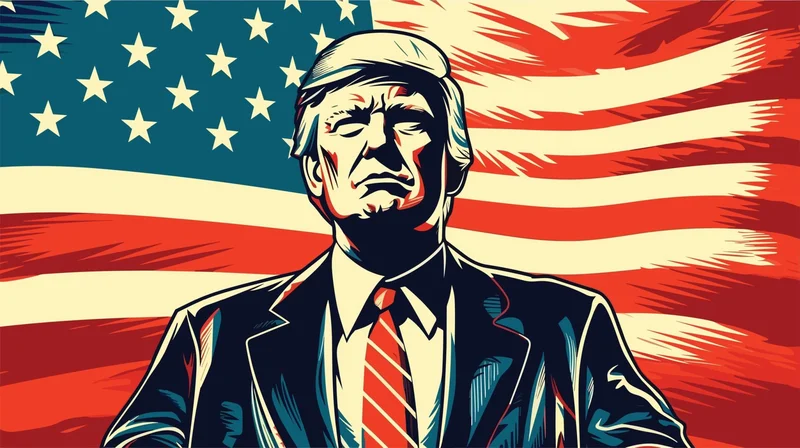World Liberty Financial, Trump, and Crypto: What's the Connection?
Generated Title: Trump's Crypto Pardon: The $2 Billion Question Nobody's Asking
`
CZ's Pardon: Corruption or Crypto Strategy?
The Pardon's Price Tag: Beyond the Fine`
Let's cut through the noise: Trump pardoned Changpeng Zhao, the Binance founder who pled guilty to failing to prevent money laundering. Binance paid a $4 billion fine. Zhao did a four-month stint. End of story? Not even close.
The narrative being spun is that this was a quid pro quo: Zhao's company, Binance, somehow enriched the Trump family's crypto venture, World Liberty Financial (WLF), and then Zhao got a pardon. Corruption! cries the chorus. Okay, but let's dig into the numbers.
Elizabeth Oyer, former head of pardons at the Justice Department, calls the pardon unusual, citing the "influence that money played." Harvard's Lawrence Lessig says Trump is "compromised" by the transaction. Trump pardon of crypto billionaire sparks concerns over his use of the pardon power
But what is the transaction? Zhao's Binance left $2 billion deposited in WLF. The Emiratis, according to the report, chose World Liberty for "business suitability". (Business suitability for what, exactly? That's the million—or rather, billion—dollar question).
Here's where my eyebrows start to raise. The source material quotes someone saying of the Emirati deal, "it wasn't strange. It was nuts." And Lessig says, "Nobody is so stupid as to conduct themselves with that explicit structure." So, it's a wink-wink situation? Maybe. Maybe not. It's certainly not a smoking gun.
The real question isn't whether Trump directly profited (though that's a valid concern). It's whether this pardon signals a broader strategy, a calculated move to legitimize crypto within the Republican base and, more importantly, to position Trump as the crypto candidate.
`
The $2 Billion Question: Business Suitability or Strategic Power Play?
The Crypto Playbook: More Than Just a Pardon`
Trump's newfound "love" for crypto is interesting. He says he's been a "big crypto fan" since the campaign. But the timeline doesn't quite match the rhetoric. In the 2024 campaign, Trump offered "full-throated support" for the crypto industry. Before that? Not so much. Was he always a believer, or did the potential for financial gain suddenly convert him?

And what about this WLF venture? Austin Campbell, a former banker, says it was "largely unknown" before the Binance deal. They had trouble filling a fundraising round and a small engineering team.
Then, boom, Binance donates software (or "freely available" software, depending on who you ask) and an Emirati fund dumps $2 billion into WLF crypto. Suddenly, they're "one of the largest stablecoins in the world."
But here's the kicker: that $2 billion represents most of World Liberty's deposits. One source says Zhao "now controls whether [World Liberty] dies or lives. He has a sword over their head."
So, is it a bribe? A donation? Or a strategic investment? The Emiratis claim "business suitability," but that's corporate speak for "we don't want to say why."
And this is the part of the report that I find genuinely puzzling. Why park $2 billion in a fledgling crypto venture? The stated reason is "business suitability," but what does that actually mean? What specific business needs did WLF fulfill that other, more established stablecoins couldn't? It doesn't add up.
Here's the thought leap: how reliable is the source on the claim that Binance software was essential to WLF? The source is described as "familiar with events," but what is their relationship to the parties involved? Is there a built-in bias we should account for?
The article states that the $2 billion could be earning the Trumps and their partners $80 million a year in interest. That's an annualized yield of 4%. Not bad, but not exactly unheard of in the current market (treasury bills are yielding around 5%). The real value, I suspect, is not in the interest income, but in the perceived endorsement and the potential for future growth.
The Math Still Doesn't Add Up
The pardon itself is less about immediate cash and more about long-term positioning. It sends a clear signal: Trump is pro-crypto. He's willing to go to bat for the industry, even if it means overlooking past transgressions. Is it justice? Probably not. Is it smart politics? Maybe.
The article mentions that dozens of people declined to be interviewed for fear of retribution. This is a qualitative data point, but it suggests a climate of intimidation. It's hard to put a number on fear, but it's a powerful factor in any analysis.
The article points out that Biden pardoned his son and Clinton pardoned Marc Rich. (Rich's ex-wife donated more than a million dollars to Democratic causes.) So, Trump isn't the first president to use pardons in a questionable way. It's a bipartisan tradition, unfortunately.
So, What's the Real Story?
It's not about the $4 billion fine Binance paid. It's not even about the potential $80 million in interest. It's about positioning. Trump is betting that crypto will be a major force in the future, and he wants to be seen as its champion. The pardon of Zhao is a calculated risk, a play to win over a powerful constituency. Whether it pays off remains to be seen, but one thing is clear: this is not just about corruption; it's about power.
